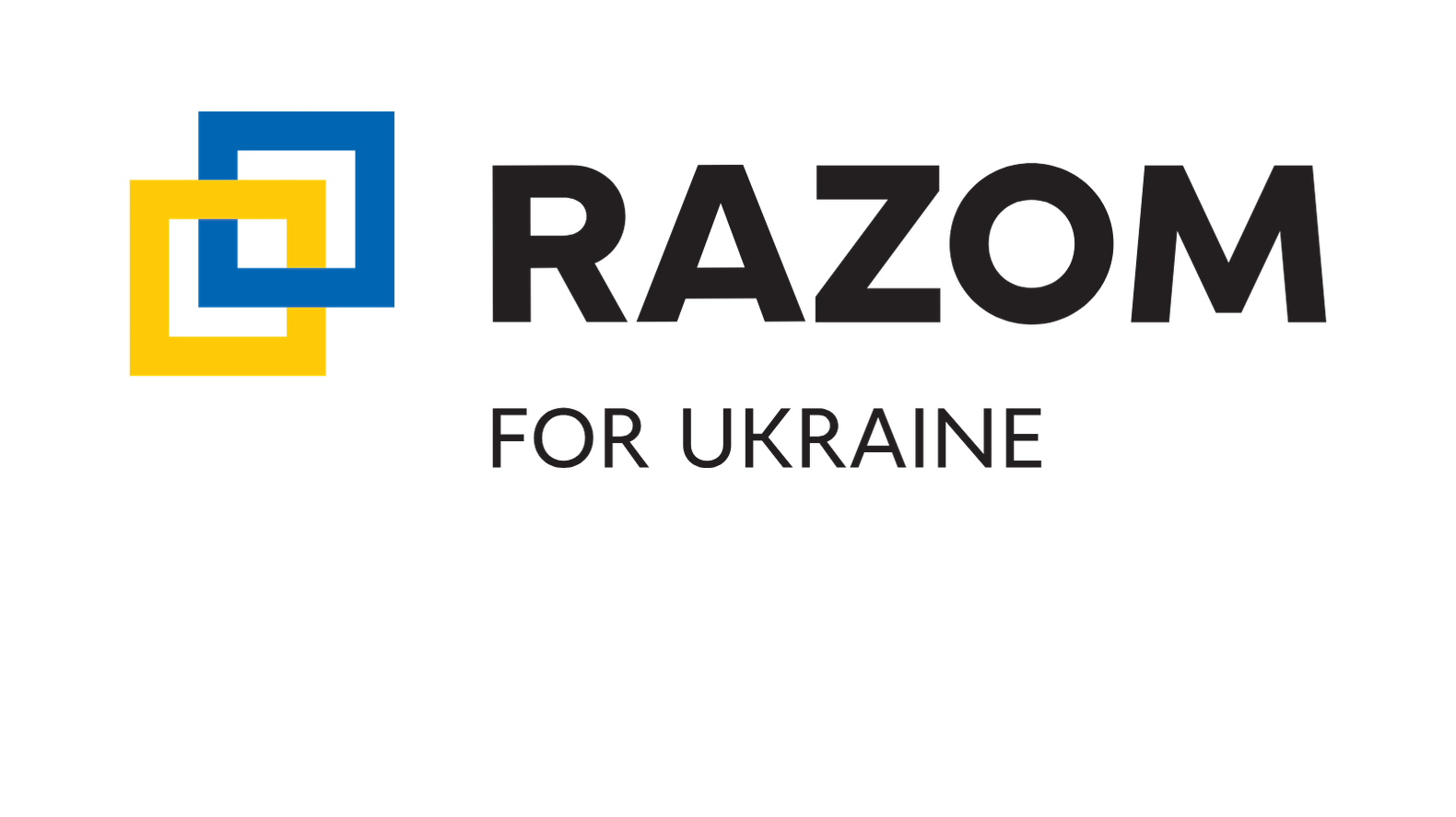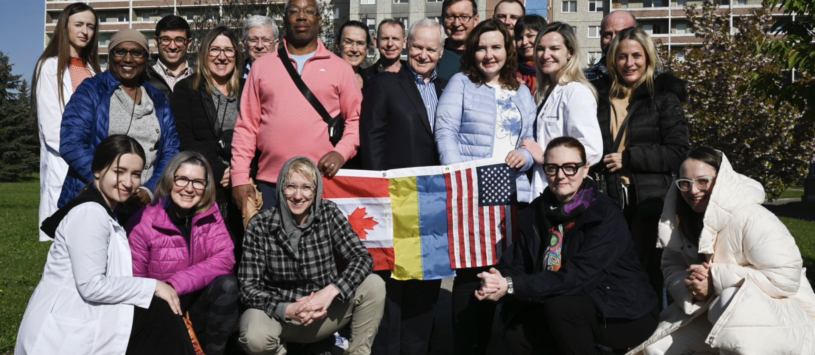Medical personnel from the Ivano-Frankivsk Regional Hospital gather with Face the Future Foundation team members and Razom Co-Pilot Coordinator in Ukraine, Lilea Dzhaliuk, in front of the hospital during the April 2024 medical mission.
Since the start of Russia’s full-scale invasion, Ukraine’s healthcare system has faced immense pressure. According to the World Health Organization (WHO), there have been more than 2,100 attacks on healthcare facilities, resulting in the deaths and injuries of hundreds of medical workers and patients. Nurses—who make up the backbone of the healthcare system—have carried a disproportionate burden.
As women and families are forced to flee, the nursing profession—largely made up of women—is stretched thin. Those who remain often care for overwhelming numbers of displaced patients, while adapting to the complex realities of war injuries and under-resourced facilities. The shortage of qualified nursing staff has become critical. Younger, less experienced nurses—and at times even patients’ family members—are taking on care responsibilities.
Despite the challenges, Ukraine remains determined to improve patient care. But progress is impossible without support. That’s why Razom’s Co-Pilot Project partners with organizations like Face the Future Foundation, Still Strong, and Patients of Ukraine to support Ukrainian nurses through training, equipment, and knowledge exchange. In April 2024, this partnership brought together international and Ukrainian nurses, surgeons, and medical coordinators for a mission at Ivano-Frankivsk Regional Hospital—and an academic nursing symposium that reached more than 300 healthcare workers from across the country.
Behind the Scenes: Coordinating Surgical Care During Wartime
To understand what it takes to coordinate a mission like this, we turn to Debbie Fritz, RN. A retired nurse with more than 40 years of experience in labor & delivery, the operating room, and pediatric care, Debbie has participated in 35 humanitarian surgical missions since 2006. When Russia launched its full-scale invasion, she joined the Face the Future Foundation team on a mission to Ivano-Frankivsk in September 2022—and has since returned twice more as Operating Room team lead.
“One of the challenges early on was trying to recruit qualified people who are willing to travel to an active war zone,” she explains. “Some people are totally on-board, but their family members say ‘absolutely not!'”
In her leadership role, Debbie coordinates daily OR operations and surgical supply procurement, while ensuring her team feels confident and supported. Her collaborative approach helps build trust quickly in high-stakes settings. “After just a few cases together, the team develops a smooth and fluid rhythm,” she says.
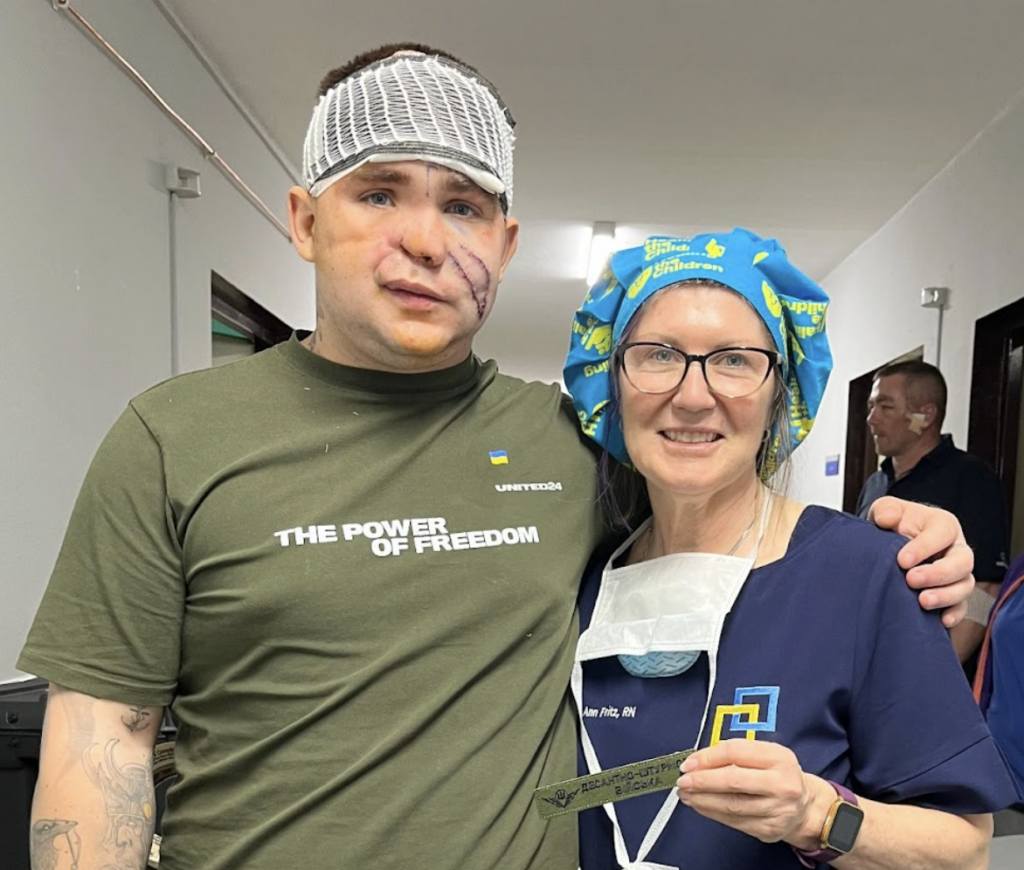
Each mission requires careful planning, especially around supplies. Debbie starts sourcing essentials—surgical packs, sterile gowns, gloves, sutures, medications—months in advance. Backorders, shipping delays, and last-minute surgical needs are constant hurdles. But thanks to her preparation, Ukrainian hospitals are able to deliver high-quality surgical care amid wartime constraints.
Symposium for Strength: Learning, Sharing, and Supporting Nurses
During the April mission, Patients of Ukraine and partners organized an academic nursing symposium in Ivano-Frankivsk that brought together more than 300 nurses from across Ukraine. The event focused on sharing knowledge, building resilience, and creating community among nurses facing unprecedented challenges.
Laurie Thomas, RN from Toronto, Canada, led the academic day. She provided hands-on training in catheterization and cardiac assessment and brought donated stethoscopes and other urgently needed equipment.
Amy Bradley, RN from Houston, Texas, participated alongside her husband, an anesthesiologist. Amy specializes in PTSD, anxiety, and trauma care—and her contribution to the symposium focused on the mental health of nurses and patients alike. “Self-care is not a luxury,” she explained. “It’s a necessity for nurses working through war.”
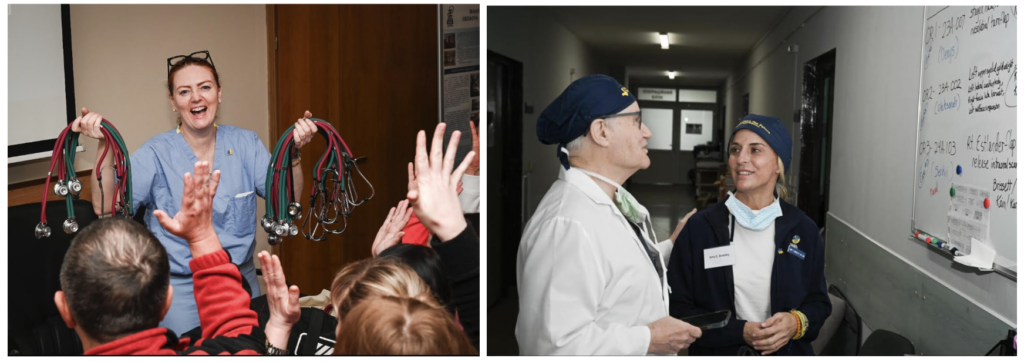
Challenges in Ukraine’s Healthcare System
Both Laurie and Amy identified systemic challenges in Ukraine’s healthcare landscape. Amy noted the hierarchical structure that limits collaboration: “Doctors are seen as above nurses, instead of equally important parts of the healthcare team. This can interfere with patient wellness.”
Laurie highlighted the lack of continuing education: “Unlike in North America, Ukrainian nurses rarely receive dedicated teaching time. Now, they’re being asked to care for complex cases like facial trauma without the training support they need.”
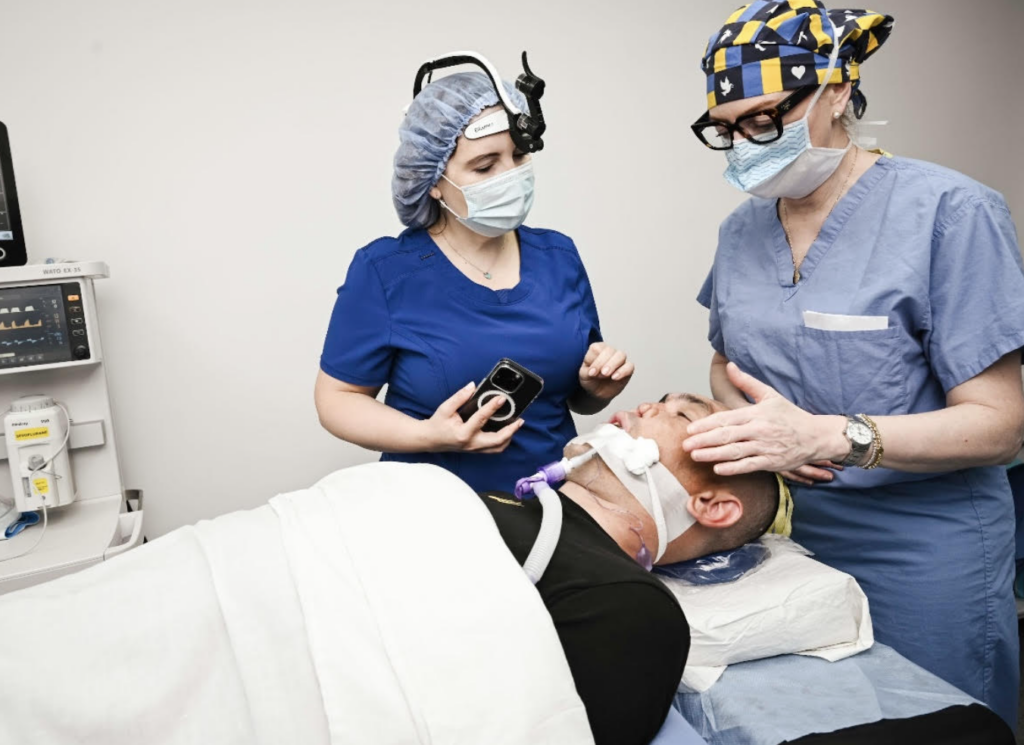
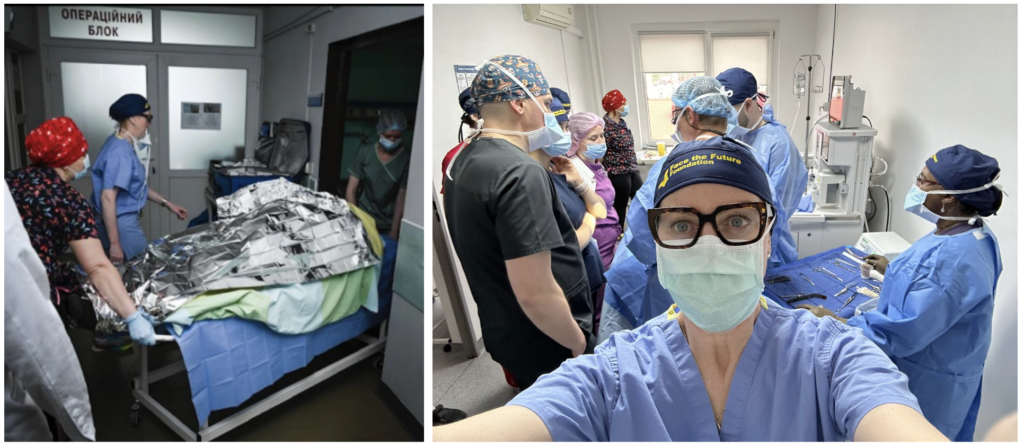
The Emotional Toll of War
Ukrainian nurses carry not just medical but emotional burdens. “It’s hard to focus on your work when you’re listening for the next air raid siren,” says Laurie. “Many nurses have to go home and care for children while worrying about husbands at the front.”
Amy adds: “They are exhausted. Many have lost loved ones, their homes, their income. Women are holding the country together. And when this war is over, they will be the ones to rebuild.”
Resource Gaps and Solutions
The mission team addressed critical equipment shortages. The hospital lacked a bladder scanner, and catheter supplies were minimal. Through Razom, the team purchased a scanner and distributed donated catheters and 60 brand-new stethoscopes.
Beyond equipment, systemic change is underway. Ivano-Frankivsk Hospital leadership is expanding the scope of nursing practice. “Dr. Komashko and Head Nurse Nataliia Ryzhulo are making real progress,” Laurie explains. “More hospitals need this kind of leadership and support.”

Elevating Patient Care: Practical Training
During post-op care, Amy observed dangerous gaps. “There was no recovery room protocol. Patients weren’t monitored for pain or complications. It wasn’t that the nurses didn’t care—they had just never been taught.”
One case stood out: a patient waking up in severe pain was dismissed as “fine.” Amy intervened with proper post-op care and pain relief, resulting in immediate improvement. “Infection is the second enemy of Ukrainians after war injuries,” she said. “Simple things like hygiene and pain management can save lives.”
Knowledge Sharing at the Symposium
The symposium featured nurses from every specialty—emergency, OR, critical care, rehab. Debbie Fritz delivered a session on electrocautery use and safety, drawing on her OR experience.
“It was incredibly rewarding when nurses came up during breaks to ask questions and share stories,” she said. “We emphasized that nurses are not just assistants—they are essential to successful outcomes.”
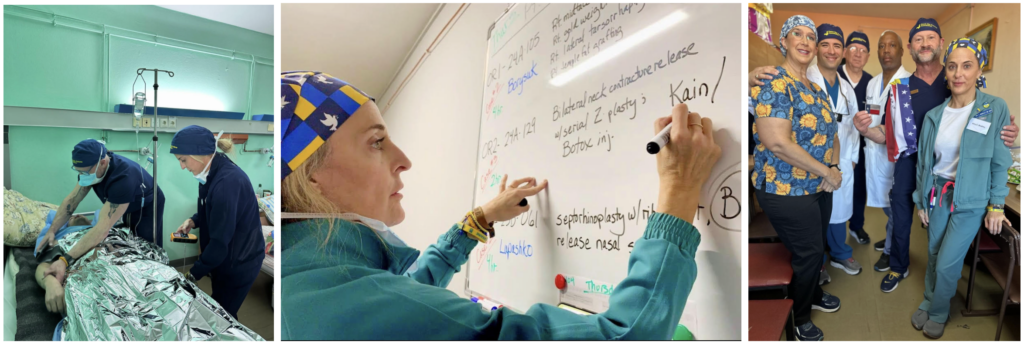
Mental Health as Essential Care
Amy’s session on trauma care used brain imaging to show how trauma affects the body. “There’s a cultural narrative in Ukraine of being tough. But we need to acknowledge trauma. Assume every patient you see has been affected.”
She used simple metaphors to convey the importance of gentleness and empathy in care. “By the end of the talk, many nurses were in tears. They finally felt seen.”
Laurie reinforced the message: “The psychological wounds of this war will outlast the physical ones. If we don’t address them now, they will linger for generations.”
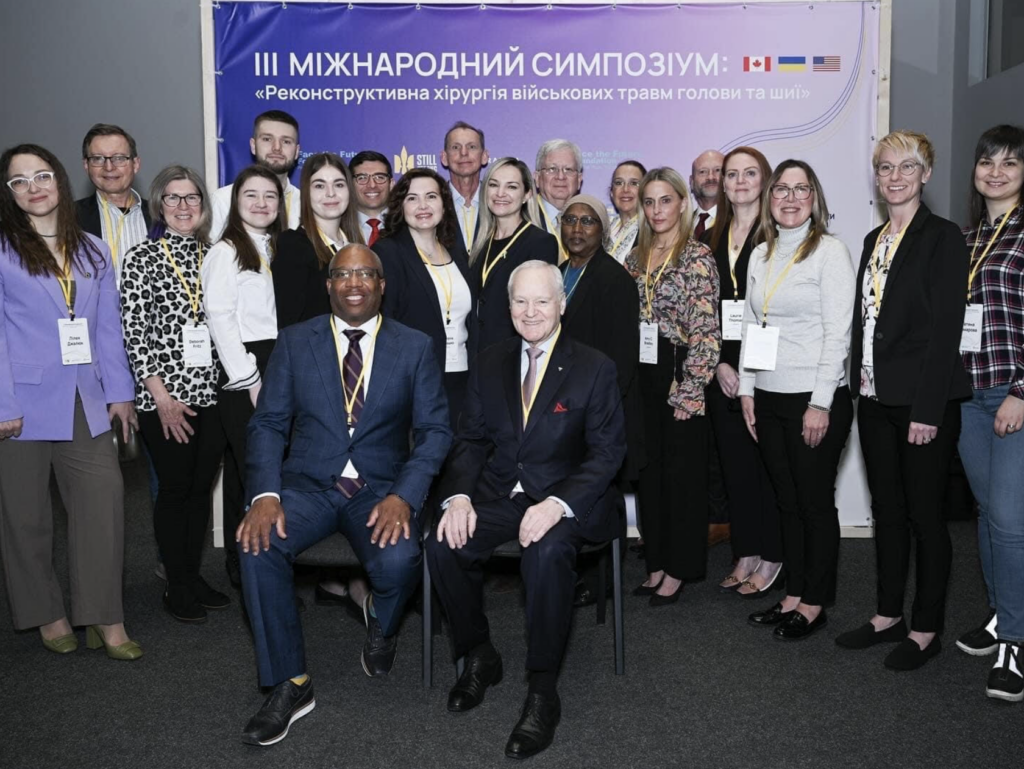
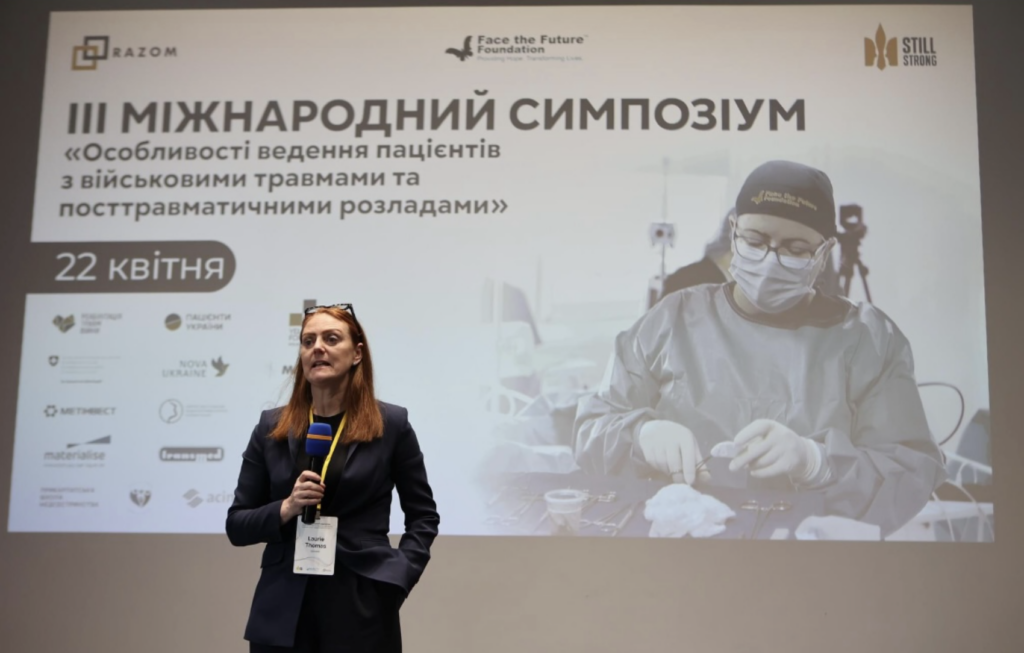
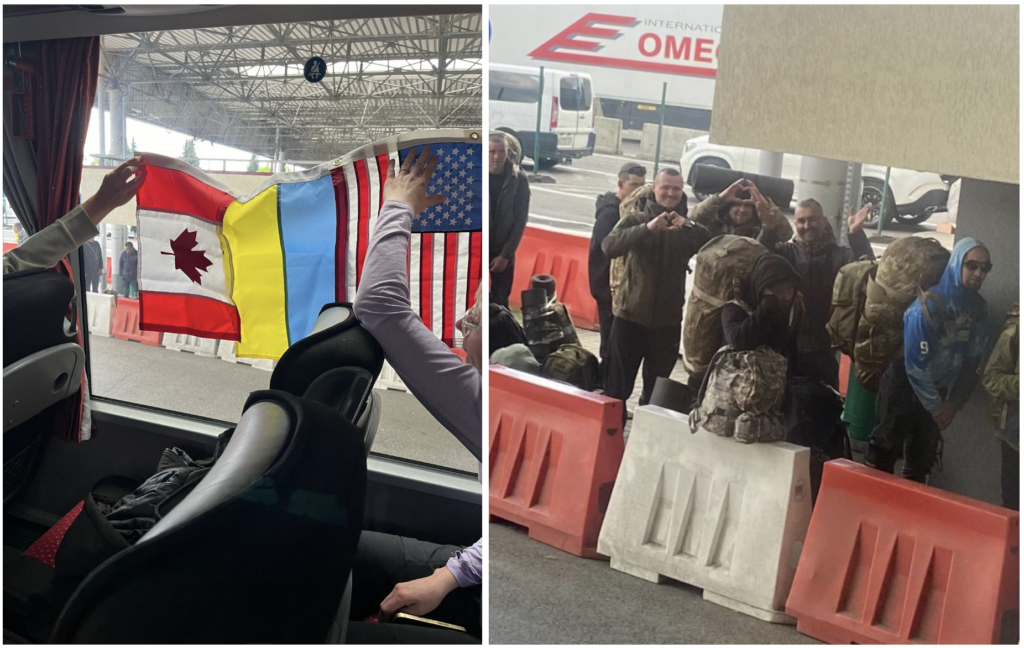
Building Bridges Through Healthcare
These missions are about more than surgical care. They are about solidarity, community, and long-term capacity building. International and Ukrainian nurses are learning from each other, improving outcomes, and forging lasting partnerships.
As the Face the Future Foundation team left Ukraine, they passed a line of Ukrainian soldiers heading to Poland for training. From the bus window, the team held up a Ukrainian flag. The soldiers responded with heartfelt hand gestures of thanks.
Moments like this remind us: We are stronger together. And together, we will help rebuild a resilient, compassionate, and skilled healthcare system in Ukraine.
Support Razom’s Co-Pilot Project
Help us train and equip Ukrainian healthcare workers. Support missions like this one and be part of the effort to strengthen Ukraine’s healthcare system from the ground up.
Thank you to Yana Leshchynska and Yuliia Shama, for working on the article.
